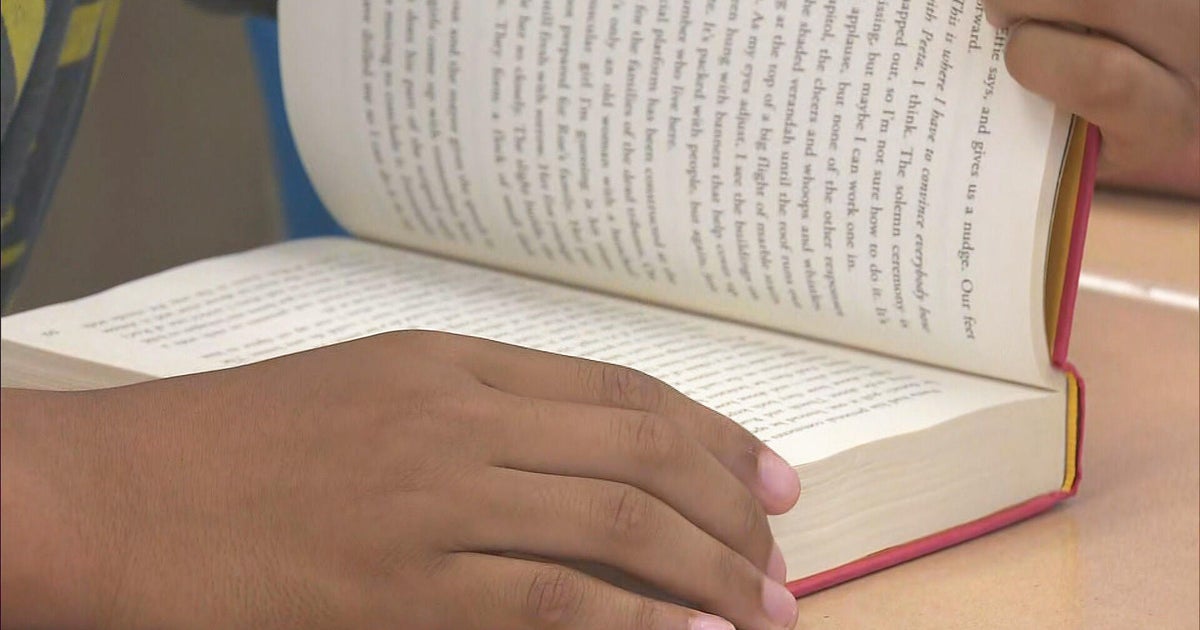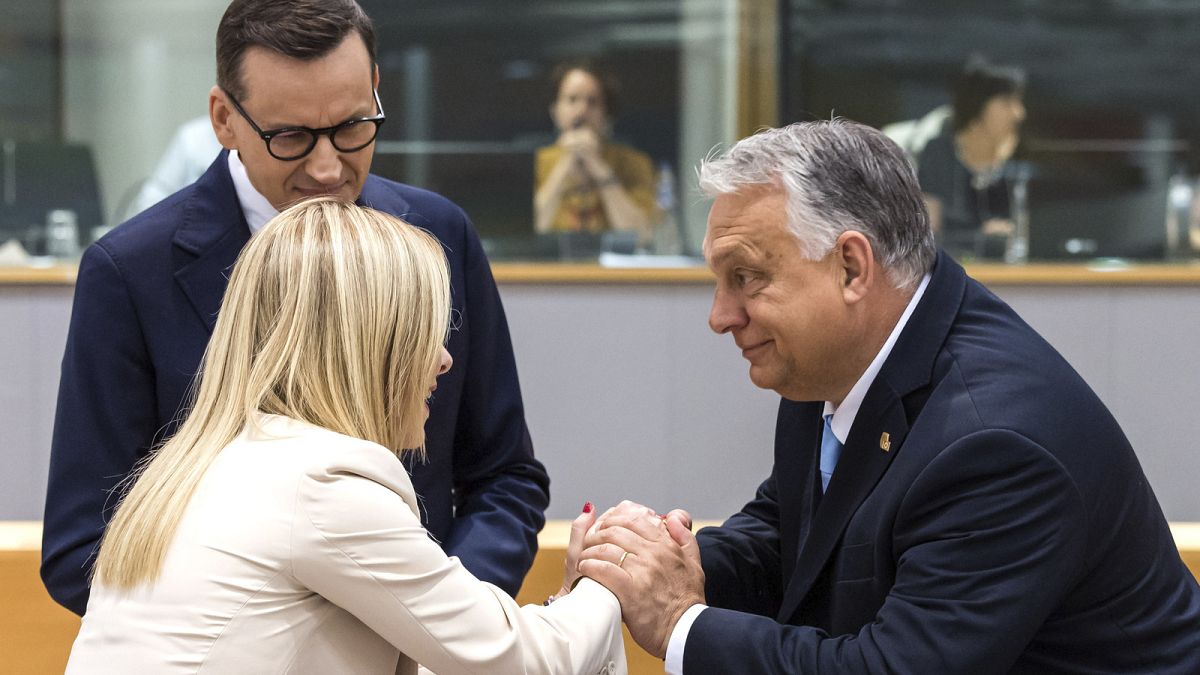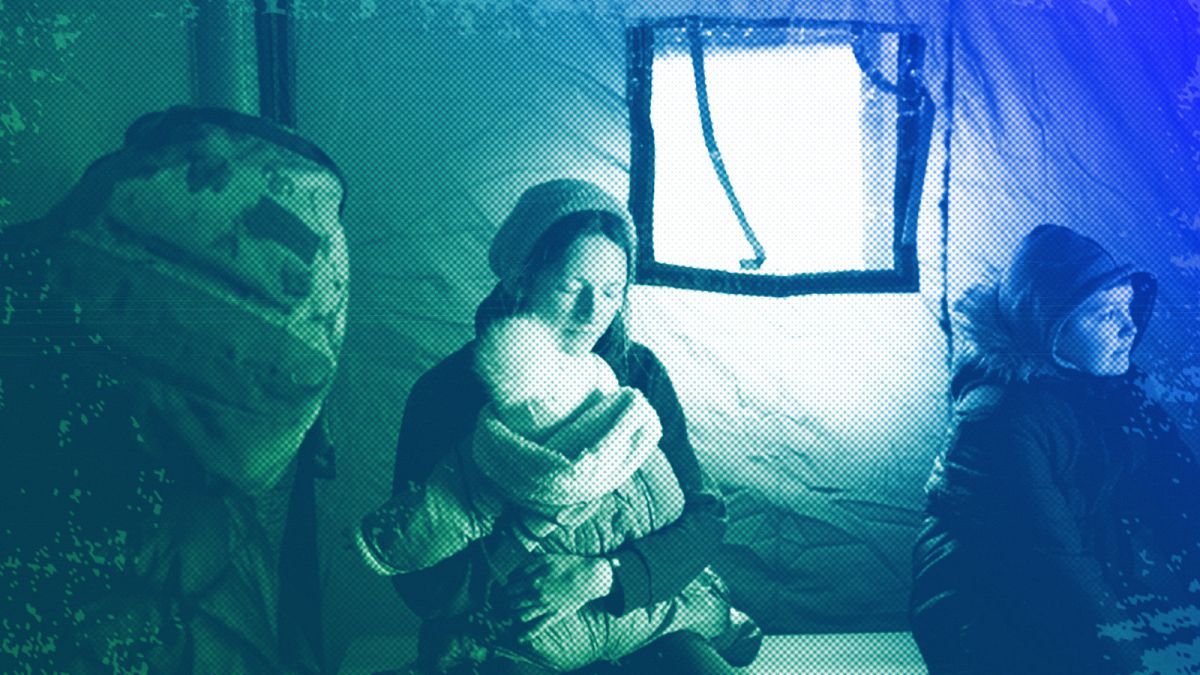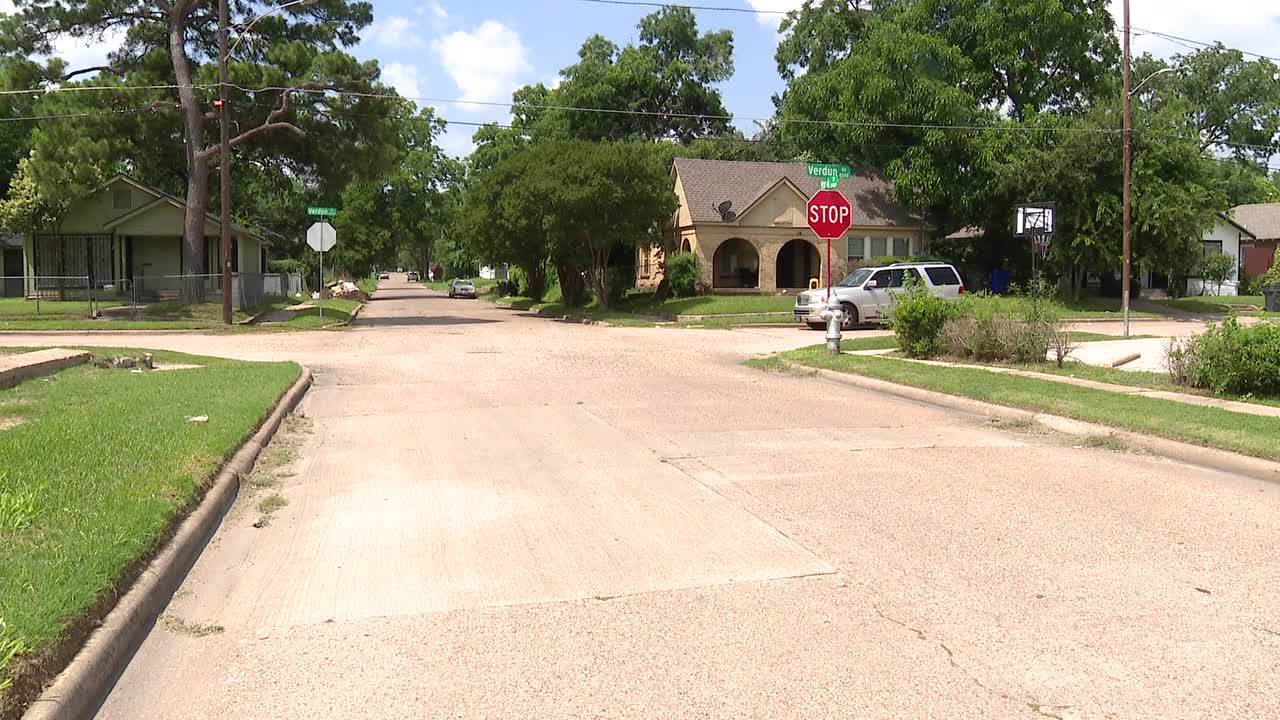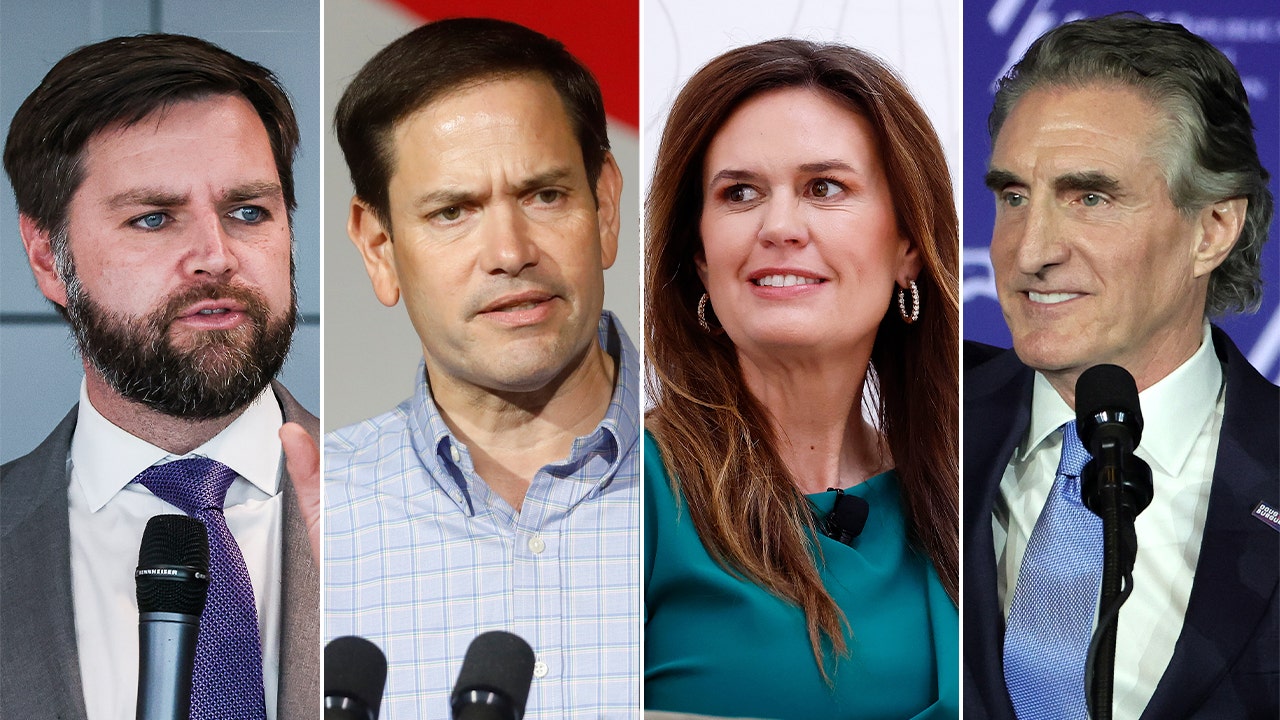World
The contentious EU-Tunisia deal is here. What exactly is in it?
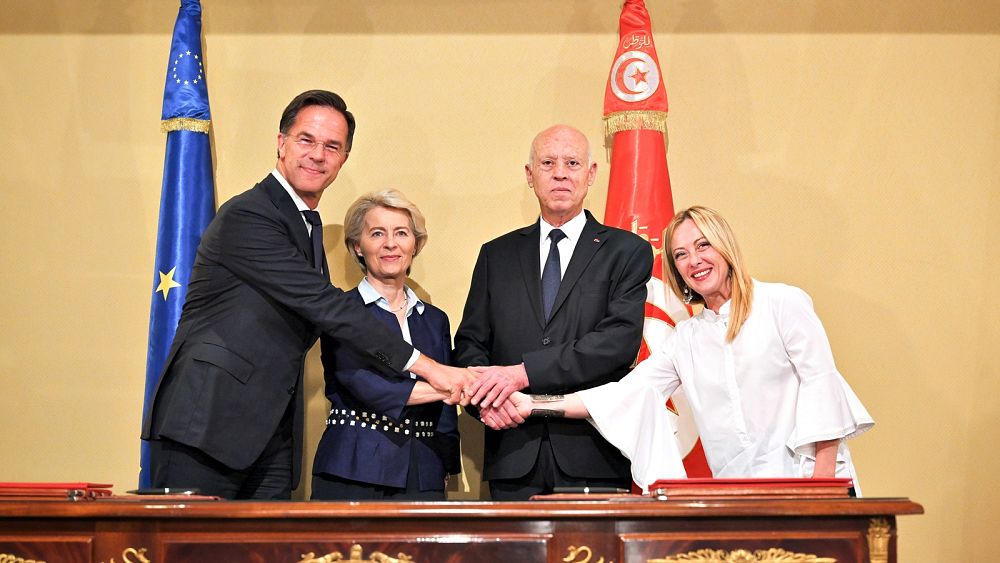
Following weeks of intense negotiations, the European Union and Tunisia have finally signed a memorandum of understanding covering topics ranging from migration to economic cooperation.
The deal was unveiled on Sunday after a meeting in Tunis between Tunisian President Kais Saied and European Commission President Ursula von der Leyen, who was joined by Italian Prime Minister Giorgia Meloni and Dutch Prime Minister Mark Rutte.
“In times of geopolitical uncertainties, it is important to deepen cooperation with our strategic partners,” von der Leyen said, without taking any questions from the press.
The memorandum’s official presentation had been preceded by a flurry of speculation and media reports over how much taxpayers’ money the European Union, a staunch supporter of human rights, would be willing to disburse to Tunisia, whose government has been repeatedly accused – including by the European Parliament– of cracking down on freedom of expression, judicial independence and civil society.
President Saied, in particular, has been criticised for steering the country back into authoritarianism and spreading racist claims against African migrants using talking points that echo the great replacement, the far-right (and baseless) conspiracy theory that proclaims elites are actively replacing native populations with black people.
Said drew a stark rebuke from the United Nations after he alleged in February that “hordes of illegal migrants” arriving from Sub-Saharan countries were part of a “criminal plan to change the composition of the demographic landscape of Tunisia” and were the source “of violence, unacceptable crimes and practices.”
But on Sunday, von der Leyen, Rutte and Meloni glossed over the controversy and, following the motto of “the end justifies the means,” took a pragmatic approach to tackling one of the EU’s most pressing dilemmas: migration.
Here’s everything we know so far.
What’s in the memorandum?
On paper, the memorandum of understanding is a declaration of political intentions made jointly by the European Union and Tunisia to improve their bilateral relations and address common challenges in a “strategic and comprehensive” manner.
The text is not binding and does not create any obligations in and of itself. However, it presents a series of action plans that will be gradually fleshed out, turned into legal instruments and approved by member states before being implemented.
The plans are split into five thematic pillars: macro-economic stability, economy and trade, the green transition, people-to-people contacts and migration.
Each category features different investment and cooperation projects, many of which will involve the direct disbursement of funds from the common EU budget.
How much money is foreseen?
The memorandum is vague on financial figures, which could change according to developments on the ground, but some preliminary numbers have already emerged.
One of them is €150 million, the amount of money the EU intends to provide as budgetary support for the Tunisian government, which has for the past years struggled to rein in its public finances.
The country is considered to be on the verge of bankruptcy as a result of the devastating havoc wreaked by the COVID-19 pandemic, rising inflation, a worldwide swell in commodity prices, high unemployment and an exodus of foreign investment caused by continued democratic backsliding.
Brussels fears the free-falling economy might soon collapse and further exacerbate Tunisia’s internal instability, pushing people out of the country and towards the bloc’s external borders.
The €150-million envelope is meant to avoid that worst-case scenario and ensure the Tunisian government has enough liquidity to ensure the provision of basic services and lay the groundwork for economic reforms.
Additionally, the memorandum foresees €307.6 million for the development of ELMED, a transmission line between Tunisia and Italy to trade low-cost renewable electricity, and up to €150 million for the construction of Medusa, a submarine cable that will use optical fibre technology to connect 11 Mediterranean countries.
These projects will combine grants from the EU budget and loans provided by the European Investment Bank (EIB), meaning some sums will have to be paid back.
What about migration?
This is definitely the crux of the matter.
Tunisia, together with Libya, is considered one of the main gateways for asylum seekers who wish to reach European shores. Some of these migrants are Tunisian nationals who flee the country’s repressive policies, but others come from faraway places such as Egypt, Côte d’Ivoire, Syria, Afghanistan, Pakistan and Bangladesh.
Due to its geographic proximity, Italy represents, in the vast majority of cases, the first destination point for the thousands of migrants who every month attempt to cross the dangerous Mediterranean route, often after having paid an exorbitant amount of money to board an overcrowded boat with squalid conditions.
According to Frontex, last year saw more than 102,000 illegal border crossings through the Central Mediterranean, a 51% rise compared to 2021. Italy is struggling to cope with this surge in arrivals and has declared a state of emergency to deploy extra resources.
This is why migration is a key pillar in the memorandum, with an initial allocation of €105 million to combat anti-smuggling operations, reinforce border management and speed up the return of asylum seekers whose applications are denied.
The money will be provided to the Tunisian authorities in the form of search-and-rescue boats, jeeps, radars, drones and other types of patrolling equipment, and to international organisations that work on the ground, such as the International Organization for Migration (IOM) and the United Nations Refugee Agency (UNHCR).
But the disbursement of the funds will not be linked to any numerical target of annual readmissions or reduction of arrivals; and it will not have additional human rights provisions on top of the traditional clauses the EU attaches to its foreign aid programmes, despite mounting evidence of pushbacks and violent treatment against black migrants.
“We don’t wire money to authorities to do as they please,” said a senior EU official, who spoke on condition of anonymity to defend the memorandum’s most sensitive aspects. “This is not a blank cheque at all.”
The senior official insisted Tunisia would only be expected to accept the return of its own nationals – not of the thousands of asylum seekers who travel through the country in a bid to reach the bloc, something which will be done on a voluntary basis with IOM and UNCHR support. Similarly, Tunisia will not be asked to host in its territory other nationalities that have been denied a chance to seek refuge in the bloc.
“Tunisia is not foreseen to be a collecting point for irregular migrants,” the official said, recalling a similar statement previously made by the Tunisian government.
In parallel, the EU will strive to make it easier for highly-skilled Tunisians to move to the bloc for work through legal pathways and so-called “talent partnerships.” Germany, France and Belgium have already offered 300 positions as part of this initiative, the official said, with a goal to get to 700 by the end of the year.
Could there be more money in the pipeline?
Yes, there could be, but it all depends on the International Monetary Fund (IMF).
As a complement to the over €700 million that has already been earmarked, Brussels is willing to put on the table a substantial envelope of macro-financial assistance to fortify Tunisia’s fragile economy and prevent the situation from spiralling out of control.
Ursula von der Leyen said last month the bloc was ready to supply “up to €900 million” in this regard but when she spoke on Sunday, she avoided specific figures.
“We remain ready to support Tunisia by mobilising macro-financial assistance as soon as the necessary conditions are met,” von der Leyen said.
The conditions refer to ongoing talks between Tunis and the IMF around a 48-month loan agreement worth $1.9 billion, or €1.69 billion. The deal, as proposed by the IMF in October, introduces significant reforms, including on SMEs, taxation, state subsidies, transparency, governance and climate change, in exchange for the money.
The conditions were later denounced by President Saied as “foreign diktats that will lead to more poverty,” thrusting the loan into bureaucratic limbo. Brussels, who, like Rome, had high hopes for the IMF process, believes the signing of the memorandum will inject the momentum that is missing to wrap up the negotiations.
Only when the loan is set up and ready to go will the EU move forward with its own macro-financial assistance. The last time the bloc offered a programme of this kind to Tunisia was in May 2020, when the European Parliament and the Council approved a €600-million envelope in the context of the coronavirus pandemic.

World
‘SNL’ Cold Open Riffs on Trump Trial and His VP Picks

The 49th season finale of “Saturday Night Live” opened with James Austin Johnson as Donald Trump speaking at the barricades of a Manhattan courthouse, in a nod to Trump’s ongoing legal woes amid his presidential campaign.
During the sketch, Johnson as Trump spoke about his “weird and depressing” state at the courthouse, saying, “I don’t like being in court because they say very mean things about me as I’m trying to sleep.” (It was reported that Trump fell asleep in court during proceedings.) He goes on to say, “Now that my defense is supposed to begin on Monday, I would love to testify; I’m not afraid to testify at all, I’m just not going to out of fear.”
He continues to say how he doesn’t want to go back to the White House, “But it appears people want to send me there.” Johnson’s Trump pokes fun at Trump’s rigged election claims, too. “For me, it’s much better for me to not win and say it was rigged.”
Making fun of Trump’s sexist comments about women (and how he once said Heidi Klum is “no longer a 10”), Johnson, as Trump says of a juror at his trial, “They call her juror 9, but to me, she’s like a six, baby.”
Johnson’s Trump then introduced three of his potential VP candidates. “We love to say ‘VP’, like ‘Veep’ with Elaine from ‘Seinfeld.’ She can’t dance!” He says he won’t announce his VP just yet. “In many ways, it will be determined by the winner of the Jake Paul-Mike Tyson fight.” Trump says he’s invited a few people from “my short bus––I mean my shortlist.”
He brings out South Carolina Governor Tim Scott (played by Devon Walker). “I’m here to help Trump win the Black vote,” he says. Trump adds, “I’m more popular than you among the Blacks, which is really saying something.” Walker, as Scott says, “Black people have called my support humiliating, but trust me, I am my own man!”
Trump then brings out South Dakota Governor Kristi Noem (played by Heidi Gardner), wearing a red MAGA hat, holding a stuffed dog, and pointing a fake gun at the dog (a reference to her shooting a dog). “She shot a dog, which you really can’t do…but on the other hand, she shot a dog, which is pretty awesome.” Gardner, as Noem chimes in and says, “I kill goats, too!”
Finally, he wheels out his final VP pick, “The late great Hannibal Lecter!” Trump says, as Mikey Day as Hannibal Lecter is wheeled out in an orange jumpsuit and wearing the famous mask. “I think he’d really scare everybody at the border. “Get him out of here, he’s giving me Pence vibes,” says Trump, as Hannibal Lecter is then wheeled away.
Trump says it’s going to be “the summer of Trump. You’re gonna get that Trump espresso,” he sings in a reference to a Sabrina Carpenter song. Johnson, as Trump says he’ll be selling more Trump Bibles as well, along with a “Trump Torah.”
Trump finishes the cold open shouting, “In the words of my mentor, the late great Hannibal Lecter, “Live from New York, it’s Saturday night!”
This week’s “SNL” host is actor Jake Gyllenhaal, and Sabrina Carpenter stars as the week’s musical guest.
Watch the sketch below:
World
Blue flash caught in night sky over Spain, Portugal lights up social media
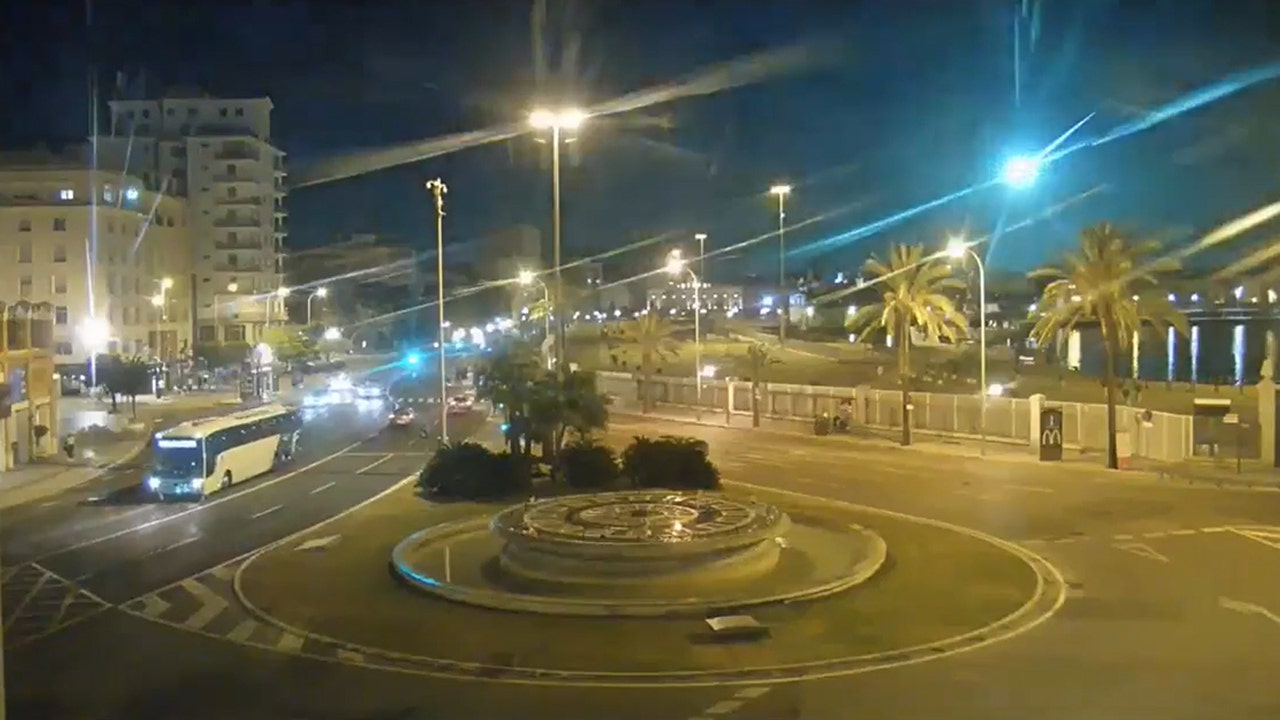
It’s a bird… it’s a plane… it’s a blue meteor? Fireball? Piece of a comet?
Whatever it was, it lit up the night sky for millions of people early Sunday morning in Spain and Portugal. Social media users took stunning pictures and videos for all to revel in the natural science phenomenon.
The spectacular sight crossed the night sky at 12:46 a.m., according to CCTV footage released by the mayor’s office in Cádiz.
The European Space Agency (ESA) Operations says the “blue meteor” everyone is referring to was actually “a small piece of a comet” that flew over the European countries at the speed of 45 kilometers a second, which is equivalent to almost 28 miles.
MERGER OF MASSIVE BLACK HOLES FROM EARLY UNIVERSE UNCOVERED BY WEBB TELESCOPE, SCIENTISTS SAY
It burned up over the Atlantic Ocean at an altitude of 60 kilometers, or more than 37 miles above the surface.
“The likelihood of any meteorites being found is very low,” ESA Operations tweeted after the agency’s Planetary Defence Office analyzed the size and trajectory of the object.
SCIENTISTS DISCOVER LARGE, ‘COTTON CANDY-LIKE’ PLANET WITH UNUSUALLY LOW DENSITY
The night sky in Cadiz, Spain, prior to the fireball’s appearance. (Ayuntamiento de Cadiz via Storyful)
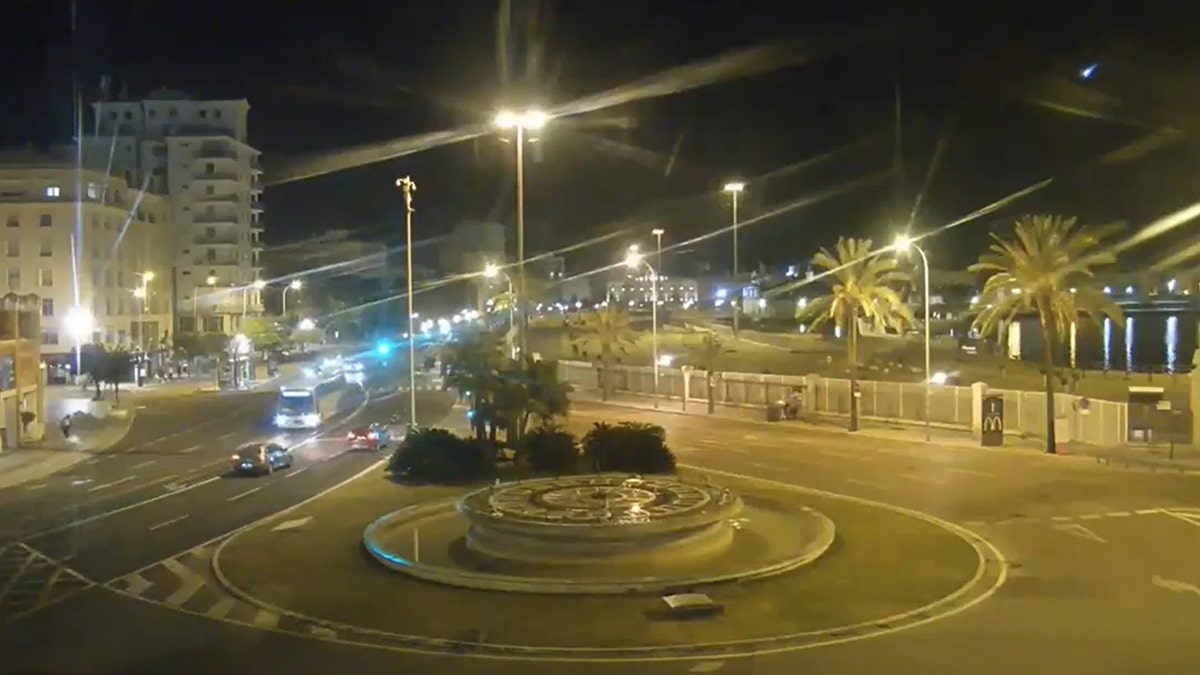
The moment the blue fireball first appeared on the camera rolling at the Cadiz mayor’s office. (Ayuntamiento de Cadiz via Storyful)
National Aeronautics and Space Administration explains the color was likely due to magnesium, and that “meteor color depends on whether the metal atom emissions or the air plasma emissions dominate.”
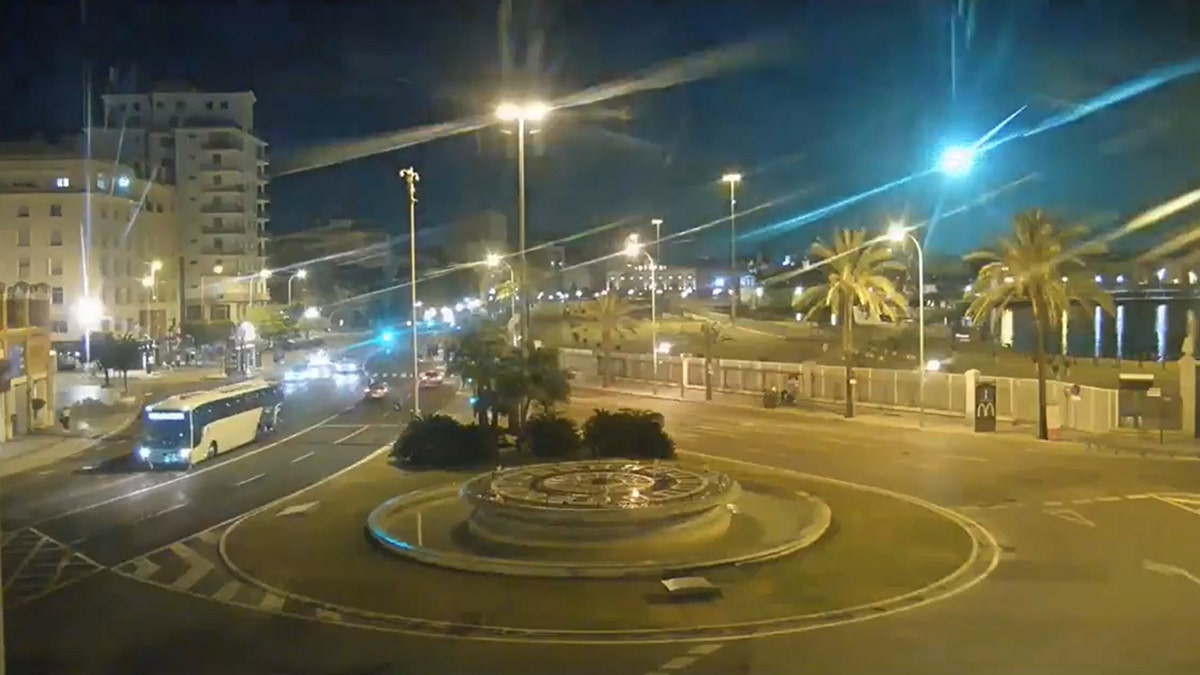
The blue fireball lit up Spain’s sky early in the morning May 19, 2024. (Ayuntamiento de Cadiz via Storyful)
“Short-period comets, also known as periodic comets, originate from a disk-shaped band of icy objects known as the Kuiper Belt beyond Neptune’s orbit, with gravitational interactions with the outer planets dragging these bodies inward, where they become active comets,” Space.com states.
Many on social media referred to what they witnessed as a “once in a lifetime sight,” according to news.com.au, with at least one joking, “That’s no meteor, that’s Optimus Prime.”
Fox News’ Mitch Picasso contributed to this report.
World
How is Azerbaijan involved with France and New Caledonia?
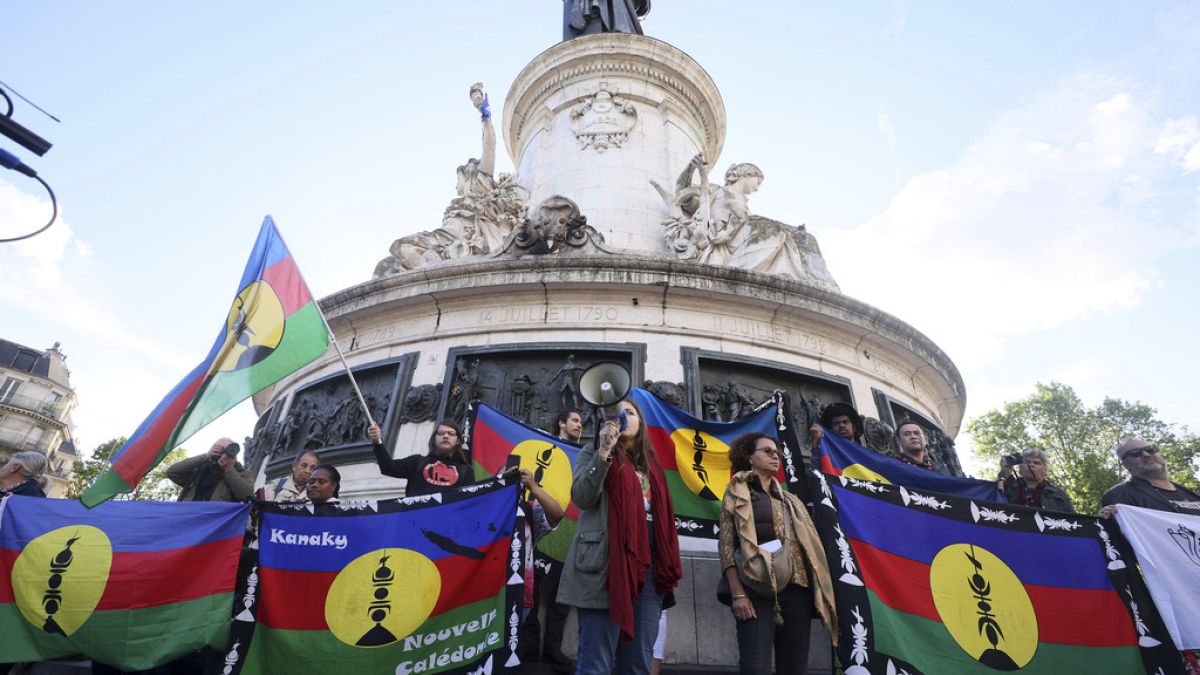
France has accused Azerbaijan of meddling in its Pacific territory, New Caledonia, by supporting independence movements and spreading disinformation, amid broader geopolitical tensions.
France has accused Azerbaijan of meddling in its Pacific archipelago territory of New Caledonia.
Despite the vast geographical and cultural distance between the Caspian state and the French Pacific territory, this claim is rooted in a complex web of historical, political, and diplomatic tensions.
The Crisis in New Caledonia
New Caledonia, located between Australia and Fiji, is a French territory with a history of striving for independence.
The recent unrest in New Caledonia was ignited by a new electoral law perceived by the indigenous Kanak population as discriminatory.
This law allows people who have lived in New Caledonia for at least ten years the right to vote in local elections, which pro-independence supporters argue will dilute the Kanak vote.
France’s Accusations
France’s Interior Minister, Gérald Darmanin, has publicly stated that Azerbaijan, along with China and Russia, is interfering in New Caledonia’s internal matters. “This isn’t a fantasy. It’s a reality,” Darmanin told the France 2 TV channel, emphasizing the seriousness of the allegations.
The French government points to the sudden appearance of Azerbaijani flags at Kanak independence protests and the backing of separatists by groups linked to Baku.
Azerbaijan has vehemently denied any involvement, calling the accusations baseless. “We completely reject the baseless accusations,” said Ayhan Hajizadeh, a spokesperson for Azerbaijan’s Foreign Ministry. “We refute any connection between the leaders of the struggle for freedom in Caledonia and Azerbaijan.”
A significant element in this story is the Baku Initiative Group, established during a conference in July 2023 in Azerbaijan. This group, which includes participants from various French territories seeking independence, aims to support anti-colonial movements against France.
The group has expressed solidarity with the Kanak people and condemned the recent electoral reforms in New Caledonia. “We stand in solidarity with our Kanak friends and support their fair struggle,” the Baku Initiative Group stated.
Why are France and Azerbaijan clashing diplomatically?
The tensions between France and Azerbaijan extend beyond New Caledonia. France is a traditional ally of Armenia, Azerbaijan’s historical rival, particularly regarding the contentious Nagorno-Karabakh region.
Following the 2020 war and a subsequent 2023 offensive by Azerbaijan to reclaim control of Nagorno-Karabakh, France has openly supported Armenia.
This support includes defence agreements and military equipment supplies, fuelling further animosity from Azerbaijan. Darmanin referred to Azerbaijan as a “dictatorship,” highlighting the deep-seated distrust.
France has also accused Azerbaijan of engaging in disinformation campaigns to destabilise its territories. Pro-Azerbaijani social media accounts have been linked to the spread of misleading content about the French police’s actions in New Caledonia.
A French government source mentioned a “pretty massive campaign, with around 4,000 posts generated by (these) accounts,” aimed at inciting violence and mistrust.
This follows France recalling its ambassador to Azerbaijan in April, with President Macron expressing regret for Azerbaijan’s actions, along with his hope that the Azerbaijanis would clarify their intentions.
Why New Caledonia?
While Azerbaijan’s direct interest in New Caledonia might seem far-fetched, it fits into a broader strategy of challenging the French colonial legacy and supporting separatist movements.
By aligning with anti-colonial sentiments, Azerbaijan aims to position itself as a champion of liberation movements, simultaneously discrediting France on the international stage.
This effort is seen as part of a broader geopolitical manoeuvering, including Azerbaijan’s efforts to tarnish France’s image, as noted by its alleged disinformation campaign against France’s capability to host the Olympic Games.
The heightened tensions have had further repercussions. The French Sports Minister cancelled the Olympic flame’s journey through New Caledonia, for security reasons, but also an action that reflects the severity of the unrest and the accusations of foreign interference.
The involvement of Azerbaijan in New Caledonia’s unrest is a multifaceted issue rooted in broader geopolitical rivalries and historical grievances.
For Azerbaijan, supporting independence movements in French territories is a way to strike back at France for its support of Armenia and to bolster its own international standing.
For France, these actions represent a direct challenge to its sovereignty and stability in its overseas territories, prompting strong accusations and heightened tensions between Paris and Baku.
-

 World1 week ago
World1 week agoUkraine’s Zelenskyy fires head of state guard over assassination plot
-

 Politics1 week ago
Politics1 week agoFox News Politics: No calm after the Stormy
-

 World1 week ago
World1 week agoIndia Lok Sabha election 2024 Phase 4: Who votes and what’s at stake?
-

 News1 week ago
News1 week agoSkeletal remains found almost 40 years ago identified as woman who disappeared in 1968
-

 Politics1 week ago
Politics1 week agoUS Border Patrol agents come under fire in 'use of force' while working southern border
-

 Politics1 week ago
Politics1 week agoTales from the trail: The blue states Trump eyes to turn red in November
-

 World1 week ago
World1 week agoBorrell: Spain, Ireland and others could recognise Palestine on 21 May
-

 World1 week ago
World1 week agoCatalans vote in crucial regional election for the separatist movement

